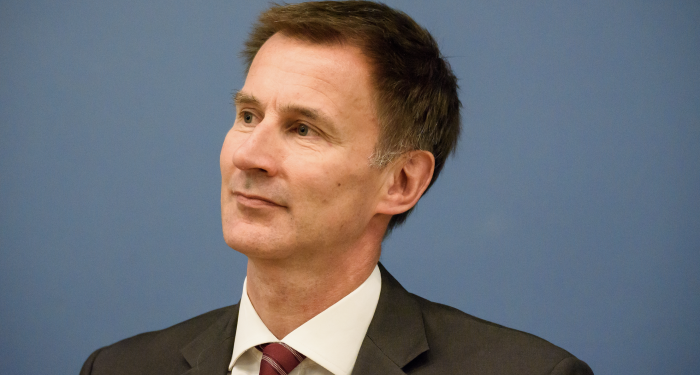The markets have responded positively to the new Chancellor’s decision to cancel the majority of measures announced in the recent mini-budget.
Critically DB pension funds look to be on a more stable footing, with borrowing costs falling significantly in response to the announcement by Jeremy Hunt this morning.
This will be welcome news for schemes running LDI strategies, coming just days after the Bank of England withdrew its support for the gilt market by ending its bond buyback programme. The pound also strengthened after news emerged that Hunt was going further than expected in unwinding the mini-budget.
Hunt has announced that the planned 1p reduction to the basic rate of income tax will be ditched, dividend tax cut plans will be reversed and the energy price guarantee is now under review, with support only guaranteed until April. After this date a more targeted scheme is expected to be introduced focused on lower-income households.
This follows last weeks u-turn on a reduction to corporation tax and the earlier decision to abandon plans to scrap the 45 per cent tax rate for those earning over £150,000.
However, Hunt has not made changes to the NI or stamp duty cuts announced in the mini-Budget, with April’s rise in NI rates reversed next month.
Hargreaves Lansdown senior investment and markets analyst Susannah Streeter says: “The Prime Minister’s authority is now so diminished that even her centrepiece strategy to alleviate the cost-of-living crisis is being sharply curtailed.
“A bonfire of her tax plans is ablaze with only the reversal of the National Insurance rise and the stamp duty cut surviving. A new fiscal broom is sweeping away the mess of the old mini budget, but it also looks increasingly likely that it will eventually wipe out the brief Prime Ministerial career of Liz Truss.”
AJ Bell head of personal finance Laura Suter says: “That sound you can hear is the death knell for Trussonomics, with the vast majority of her tax cutting plans now consigned to the bin.
“In one statement Jeremy Hunt has reversed all the mini-budget moves apart from the National Insurance and stamp duty cuts. He went further than many expected and what’s probably most worrying for people is the signal that more ‘difficult decisions’ will be taken. The Chancellor signalled that government departments will need to find more cost savings, which feels like austerity in all but name.”
AJ Bell’s head of retirement policy Tom Selby adds that these changes will have an impact on pensions, with knock-on implications for incentives to save for retirement.
“Pension tax relief is paid at your marginal rate of income tax, meaning when income tax is higher, so is the bonus for sticking money in your pension.
“If the full mini-Budget package of income tax cuts had been brought forward, a basic-rate taxpayer would have needed to contribute £1 more in order to get £100 in their pension, reducing their retirement saving bonus from 25 per cent to 23 per cent. Higher-rate taxpayers would still have received the same 66 per cent bonus, although members of relief-at-source schemes would still have needed to reclaim an extra 21 per cent of tax relief – 1 per cent more than before – from the taxman.
“Additional-rate taxpayers, meanwhile, would have seen their retirement saving bonus dip from 82 per cent to 66 per cent as a result of the now-abandoned proposal to abolish the 45p income tax rate altogether.
“Today’s announcement takes us back to square one via an unbelievably traumatic route. Brits will pay more income tax than under the mini-Budget plans announced last month, and therefore will get more pension tax relief than they would have if those plans had been taken forward.”
The post Markets welcome reversal of mini Budget: Industry reaction appeared first on Corporate Adviser.



